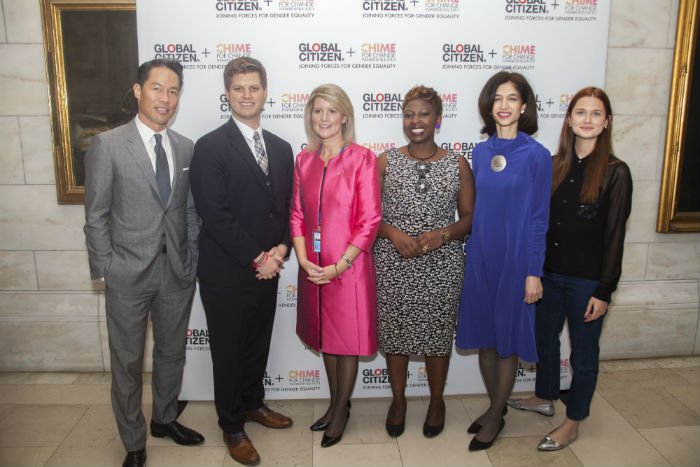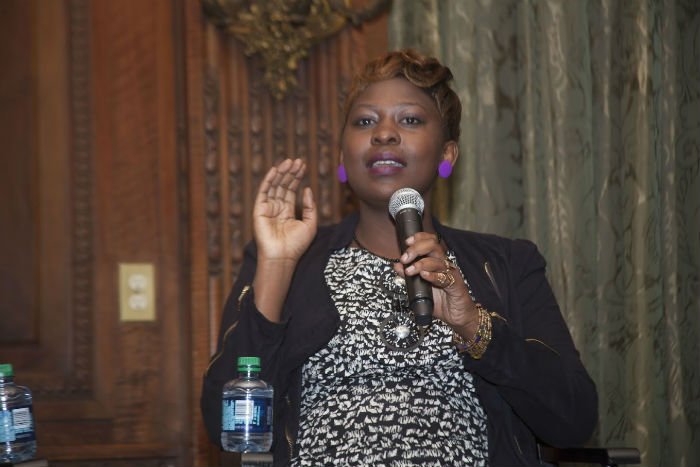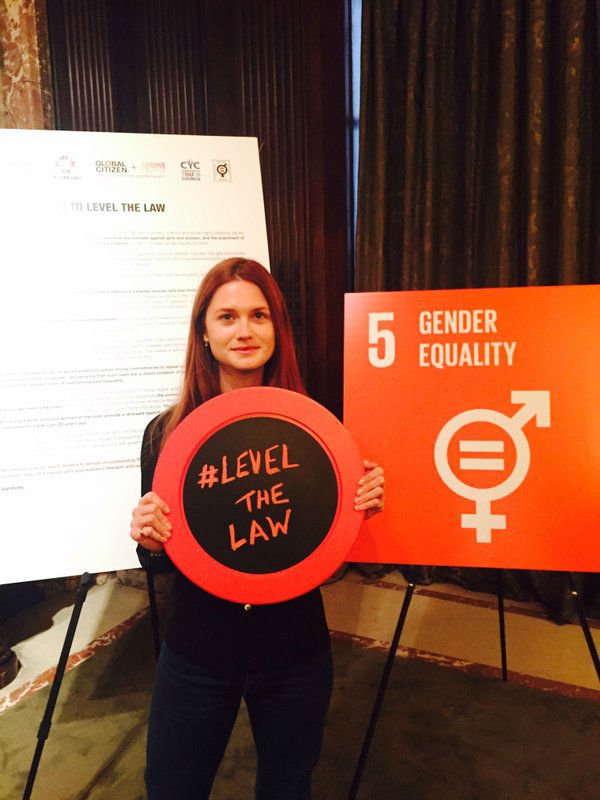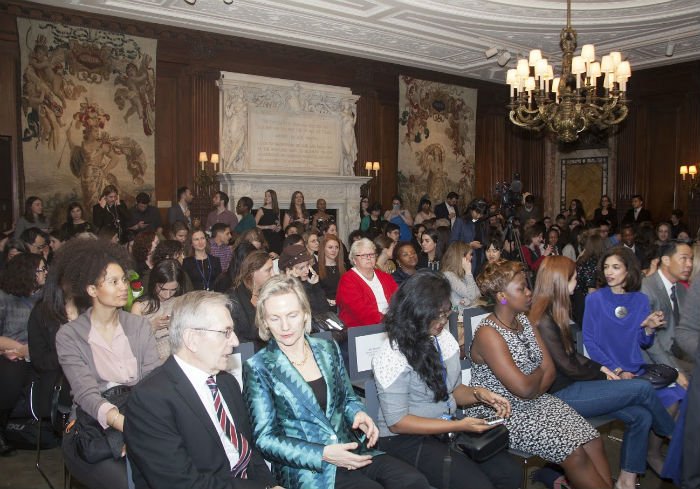World leaders, global citizens, and agents of change came together at the New York Public Library to discuss the challenges faced by women today, including all the laws that hold girls and women back.
The law is a powerful tool. For girls and women around the planet, in virtually all regions of the world, there are laws (or an absence of laws) that prevent women from achieving gender equality.
“I understand with the stroke of a pen you can make lives better. I also understand you can make lives worse,” said Natasha Stott Despoja, Australia’s Ambassador for Women and Girls at Global Citizen and CHIME FOR CHANGE’s event alongside the kickoff of the 60th session of the Commission on the Status of Women (aka CSW60).
The event also marked the second week of the #LevelTheLaw campaign--a global call to end gender discriminatory laws around the world.
At the heart of the event was a lively panel discussion led by MSNBC host Richard Lui with Natasha Stott Despoja, Australia’s Ambassador for Women and Girls; Yasmeen Hassan, Global Executive Director for Equality Now; Bonnie Wright, actress and Global Citizen Ambassador; Faith Wafula, 2015 Laureate Global Fellow member; and Michael Sheldrick, Director of Policy and Advocacy for the Global Poverty Project.

The discussion focused on laws you won’t even believe exist today that are sexist and even reinforce violence against women such as honour killings, child marriage, and FGM.
There is no such thing as an honourable killing. But there are laws that make it hard to prosecute or seek justice for the murder of a woman who violate a local custom--such as dressing or acting in an inappropriate manner.
“[These laws promote] some of the worst sanctioned violence against women,” said Hassan, author of the first study on domestic violence against women in Pakistan.
Changing the stauts quo is not a simple task, “there are also covert laws with subtle discrimination,” added Stott Despoja.
Their discussion addressed what can be the hardest part of leveling the law--making sure laws are accepted and appreciated at the community level.

"We are all from different backgrounds, but the one thing that we have in common is that as women...the strongest emotion we’ve had to experience or deal with is fear and shame," said panelist Faith Wafula, 2015 Laureate Global Fellow who fights gender-based violence in Kenya. "And when the law endorses fear and shame that is something that women at different levels will relate to."
This change at the ground level requires shifts in mindsets from everyone in a community. How do we know this? Because back in 1994, 189 governments signed up to end gender-based discrimination in the law. The problem was world leaders weren’t being pressured by their constituents to end these injustices and change laws.
Is it that women's issues “are not the world’s issues?” asked Nadia Murad, a Yazidi sex slave survivor calling for the world to end ISIS’s genocide against the Yazidi people in Iraq.

The panelists also addressed the challenges that come after changing the law: including women in the economy. This is one of most pressing and necessary measures needed to achieve the Global Goals to end inequality and extreme poverty by 2030.
More fully including women in the economy can generate “28 trillion USD by 2025,” Stott Despoja proclaimed.
“We should put girls at the heart of the global goals,” said Sheldrick, Director of Global Policy and Advocacy for the Global Poverty Project.
“What really stuck in my mind is that education is key for everything,” recalled event attendee Claudia Del Prado from the UN Spanish Mission.
Education is key if the world wants to see child marriage come to an end, FGM abolished and honour killings stop across the world.

Education can also help more girls and women get to the positions of power they need to be in. Not enough women are represented in politics. Only 22 percent of women in all national parliaments are women.
“If men menstruated the world would be very different,” said Sheldrick, speaking for the men in room and getting a laugh in agreement from all.

Whatever past excuses societies may have had, they no longer apply. The world has the tools and the power to end inequalities and is making progress. “We know women have to be seen as agents of change. We will continue to lobby for that,” said Stott Despoja.
Let’s all take action to #LeveltheLaw and use the power of the law to improve the lives of girls and women everywhere.